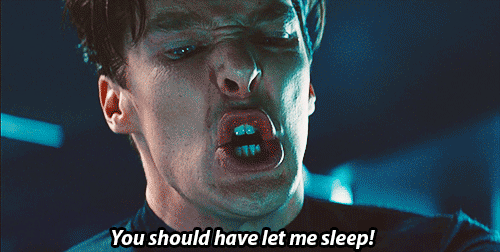So what is a Panic Attack in Sleep? Or a Nighttime/Nocturnal Panic Attack? Ever experienced a sudden episode of intense fear that triggers severe physical reactions when there is no real danger? An intense wave of fear characterised by its unexpectedness and debilitating, immobilising intensity? That’s a Panic Attack. If you’ve had recurrent, unexpected panic attacks you may have a condition called Panic Disorder.

A Panic Attack in Sleep is called Nighttime/Nocturnal Panic Attack which occurs in the middle of your sleep, waking you up for no obvious reason.
To know what Panic Attack and Panic Disorder, read our previous article, Major types of anxiety disorders – Panic DIsorder.
And to know how to cope up with Panic Attacks read, “10 ultimate Grounding Techniques to cope up with PTSD and Panic Attacks Part II”
What are Nighttime/Nocturnal Panic Attacks?
Panic Attacks not only takes place in the day time or when you are awake but also when you are asleep. As there are possibly potential risk factors and causes of having a panic attack, it is also possible that a person may experience panic attacks while in a sleeping state, known as Nighttime/Nocturnal Panic Attacks. These attacks can potentially contribute to sleep disorders and leave you feeling tired throughout your day.

When this happens while a person is sleeping, it may be difficult for them to suddenly understand and calm down. Making the person afraid of the reoccurrence panic attack and can prevent the person from falling asleep again.
This may lead to loss of sleep and consequently increased stress. Though this event causes symptoms like any other panic attack — sweating, rapid heart rate, and fast breathing — but because you were asleep when it occurred, you may wake up disoriented or lost, and frightened by the event. Sometimes people misunderstand panic attacks for heart attacks.
While nocturnal panic attacks can be sudden and frightening, they’re actually quite common. People who have panic disorder are more prone to have panic attacks during the day.
What causes them? Research hasn’t found a single, clear reason for why people experience panic attacks at night. However, the most probable reason is that the brain doesn’t ‘turn off’ during sleep, so it’s possible for any underlaying worries or anxieties to manifest in our subconscious brains, causing a nocturnal panic attack.

Causes of Panic Attack in Sleep:
There are a number of other factors that could increase the risk namely:
- Struggling with other mental health conditions such as anxiety, depression, schizophrenia, obsessive-compulsive disorder (OCD) or post-traumatic stress disorder (PTSD)
- Genetics
- Alcohol, drugs or medication withdrawal
- The side effects of some medications
- Chronic physical illnesses such as cancer
- Certain substances such as caffeine and cannabis
- Experiencing a significant personal loss, death of close relative or friend or the breakdown of a relationship
- Significant life changes such as losing a job or getting a new job, becoming a parent, and marriage
- Experiencing long time stress in your day-to-day life
Symptoms:
These are some symptoms of a panic attack, during the day or at night,
- getting chills
- sudden sweating
- the feeling of getting faint
- nausea or vomiting
- heart palpitations
- lightheaded or dizzy
- trembling or shaking
- getting a feeling that you will die
- the feeling of being detached from one’s own body
- shortness of breath
- the feeling of getting choked
- fear of losing control
- pain or discomfort in the chest
- sensations of tingling or numbness
- feelings of unreality
When to see a doctor?

If you have panic attack symptoms and they have been causing repeatedly, seek medical help as soon as possible. Panic attacks are hard to manage on your own, and they may get worse without treatment.
Panic attack symptoms can also resemble symptoms of other serious health problems, such as a heart attack, so it’s important to get evaluated’
Psychotherapy
There are many forms of psychotherapy that can treat anxiety. One of the best methods is cognitive-behavioural therapy (CBT). CBT encourages changing your thought process to improve your behaviour and mood.
Medication
There are various types of medications your doctor may prescribe. The most common drugs prescribed for short-term anxiety attacks are benzodiazepines. The most common drugs prescribed for chronic cases of anxiety are antidepressants.
In many cases, both psychotherapy and medication may be used in conjunction to produce the best results.
Coping or Grounding Techniques
To prevent or cope up with panic attacks in sleep you can refer these techniques for immediate results, “10 ultimate Grounding Techniques to cope up with PTSD and Panic Attacks Part I”
Like!! Thank you for publishing this awesome article.